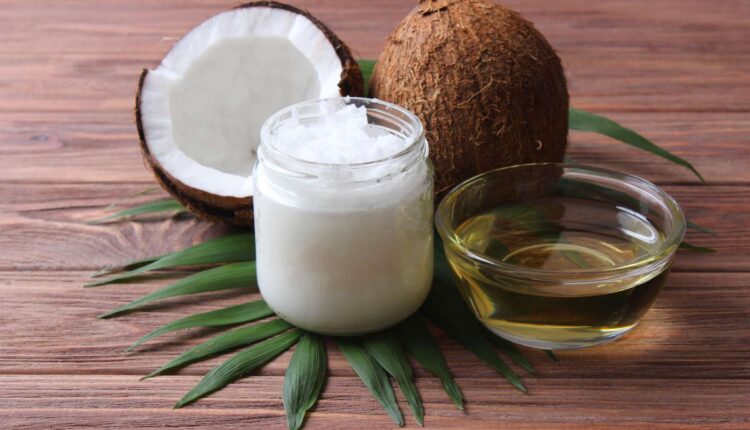Coconut oil has been used for centuries as a natural skincare miracle, especially in many African homes where it’s used to moisturise, soothe dry skin, remove makeup, and even soften baby hair.
But this week, a viral tweet threw the internet into chaos: a light-skinned Nigerian woman claimed she doesn’t use coconut oil because it darkens her complexion.
Cue the debates. Everyone’s been weighing in on the gist, giving their profound takes and opinions. But what’s the truth? Can coconut oil actually darken your skin?
Let’s break it down.
What is coconut oil, and what does it do for your skin?
Coconut oil is extracted from mature coconuts and contains fatty acids like lauric acid, which give it powerful moisturising and antibacterial properties. This is why it’s a popular go-to for people with dry skin, eczema, or even acne-prone skin.
When applied to the skin, coconut oil locks in moisture, soothes irritation, helps repair the skin barrier and gives a glowy, slightly oily finish.
But it does not contain any bleaching or darkening agents. So where does the idea that it “makes you darker” come from?
Coconut oil + sun = more UV absorption
Coconut oil on its own won’t make your skin darker. However, applying it and then stepping into the sun can be a different story.
Oil sits on top of your skin and can attract and trap heat, make your skin more sensitive to UV rays and act like a magnifying glass in strong sunlight.
This intensifies sun exposure, which may cause sun tanning or skin dullness, especially for people who use it during the day without sunscreen.
So no, it’s not the coconut oil itself; it’s the sun exposure that’s doing the damage.
What dermatologists recommend
Most dermatologists agree that coconut oil is safe for the skin, but it may not be suitable for everyone. Here’s what to keep in mind:
Use it at night if you’re worried about sun exposure
Pair it with sunscreen during the day
Skip it if you’re acne-prone, as it can clog pores
For hot sunny days, use lighter moisturisers like shea butter, aloe vera, or glycerin-based lotions
Note: It’s generally recommended to do a patch test before widespread use, especially for sensitive skin, and to consult with a dermatologist for personalised advice.
Africa and colourism
Part of why this debate blew up is because of how we view skin tone. In Africa (and across much of the world), there’s a long-standing bias that equates fair skin with beauty, wealth, and desirability.
This is the same bias that fuels the billion-dollar skin-lightening industry.
So when someone says they’re avoiding a product because it “makes them darker,” what they may actually be reacting to is the fear of losing their light-skin privilege.

